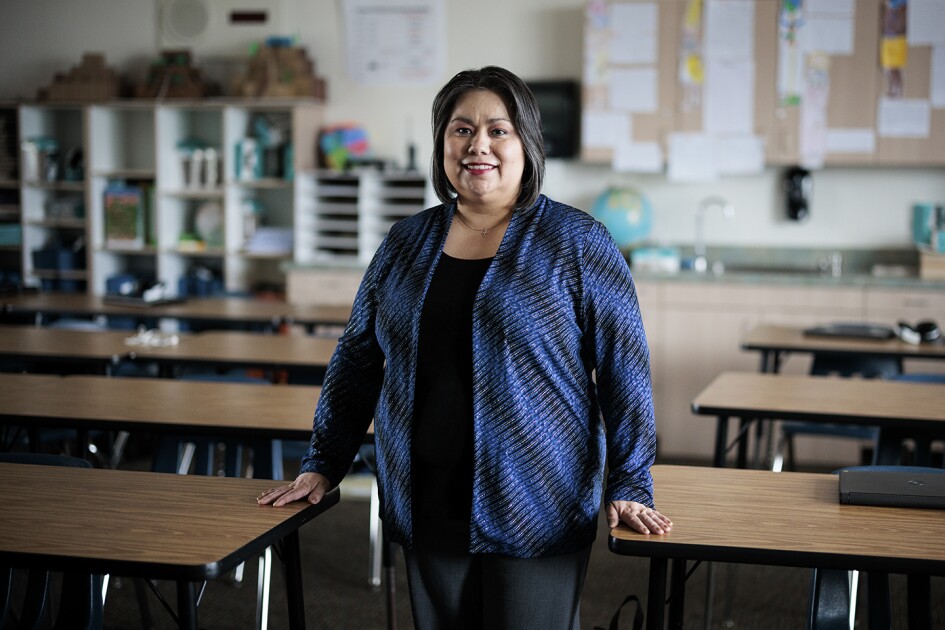
UPDATED
U.S. Secretary of Education Betsy DeVos has announced that more than $180 million in grants will soon be available to help statewide virtual learning and course access programs, as well as “microgrants” to help families access technology services to help their children learn during the coronavirus pandemic.
In addition, the Rethink K-12 School Models Grant could support “new, field-initiated models for providing remote education not yet imagined” without going into more details on this front. The new money is authorized by the Coronavirus Aid, Relief, and Economic Security (CARES) Act that President Donald Trump signed last month. It empowers DeVos set aside 1 percent of nearly $31 billion in education aid to provide grants to states “with the highest coronavirus burden.” The new grant competition is open to state education departments.
“The current disruption to the normal model is reaffirming something I have said for years: We must rethink education to better match the realities of the 21st century,” DeVos said in a Monday statement announcing the grants. “This is the time for local education leaders to unleash their creativity and ingenuity.” The department said these grants would “spark student-centered, agile learning opportunities.”
During a White House press conference last month, DeVos floated the idea of creating “microgrants” to help students stranded at home because their schools had shut down. A U.S. Department of Education spokesperson subsequently said these would target students whose schools had been closed for at least 30 days and either have an individualized education program, or are eligible for the Supplemental Nutrition Assistance Program, commonly known as SNAP.
More Flexible Money
However, the department said applications for Rethink K-12 School Models funding would be available within two weeks, so we don’t yet know all the parameters for the grants. More than 85 percent of public school students won’t return to in-person classes this year due to the pandemic.
DeVos has long been a supporter of tax-credit scholarships, vouchers, and other forms of school choice—her efforts to get Congress to expand their footprint has proven largely unsuccessful, however. She doesn’t pitch these grants specifically as a school choice model, but she clearly wants these grants in part to put more money in the hands of families and not traditional public school systems, a key tenet of arguments for K-12 choice.
It’s not clear to what extent states that have struggled with relatively large numbers of coronavirus cases and deaths, such as Michigan, New Jersey, and New York, would seek out this grant money, or if states with well-established virtual learning infrastructures like Florida could be major beneficiaries. Peer reviewers will judge states’ applications, and the highest-scoring states will get grants.
More information on these grants is here.
In response to the news, the National Coalition for Public Education, an advocacy group that opposes vouchers, said in a statement that, “Public dollars should fund public schools. This scheme is no different than other attempts by this administration to divert federal funding to unaccountable private educational entities.”
For context, $180 million in grants is just over 1 percent of the department’s $16.3 billion in Title I funding for schools with large shares of disadvantaged students—that’s the single-largest pot of money DeVos’ agency controls. School districts are receiving roughly $13.5 billion in CARES Act aid to help them address various challenges related to the coronavirus.
In addition to these Rethink K-12 School Models Grants, DeVos also announced $127.5 million for Reimagining Workforce Preparation Grants that are part of the same CARES Act funding set-aside for her. These grants are “designed to expand short-term postsecondary programs and work-based learning programs in order to get Americans back to work and help small businesses return to being our country’s engines for economic growth,” the department said.
Separately but in a similar vein, DeVos is developing vouchers for teacher professional development under the Every Student Succeeds Act.
Photo: U.S. Secretary of Education Betsy DeVos testifies before a Senate spending committee. --Susan Walsh/AP



